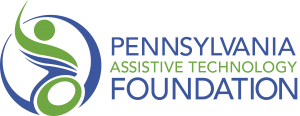RIC Releases Brief on People With I/DD and Telehealth
Resources for Integrated Care (RIC) recently released a brief on telehealth and its impact on dually eligible people with intellectual and developmental disabilities (I/DD). As noted by RIC, people dually eligible for Medicare and Medicaid, as well as people with I/DD, are diagnosed with multiple chronic conditions at higher rates than the general population and often face barriers with access to healthcare.
Telehealth services have been increasing in popularity and usage and have the potential to positively impact people with I/DD. Health plans can utilize this information to further their understanding of how telehealth modalities can improve access to person-centered care for people with I/DD.
Call to Action: Contact Governor Shapiro to Fund IDD Services
RCPA has partnered with other organizations representing intellectual disability and/or autism (ID/A) providers to send a letter to Governor Josh Shapiro asking him to invest an additional $430 million for IDD services in the 2023/24 state budget proposal. Governor Shapiro needs to hear from providers, families, individuals, and advocates for the IDD system that we are in critical need of this additional funding. This investment would enable providers to improve the wages for the Direct Support Professionals (DSPs) who provide care to individuals with ID/A. Improving wages will help to ensure services are available to the individuals and families who rely on these services.
Currently, thousands of Pennsylvanians with ID/A are not receiving the supports they are entitled to through Medicaid, and those individuals who are currently receiving services are in danger of losing them. The current rate system does not support the ever rising costs of providing services and paying the DSPs a wage that is reflective of their duties. Our workforce is not sufficient to meet the needs of everyone who requires care.
The additional investment into the Home and Community-Based Services rates will enable providers to give their DSPs a raise and a better starting wage to compete with other employers.
Please reach out to our Governor and ask for his support today! You can reach Governor Shapiro via this online form.
What You Need to Know About PA ABLE! — PATF Webinar on March 15

Wednesday, March 15, 2023
6:00 pm ET
Register here
Pennsylvania’s ABLE program provides individuals with qualifying disabilities a way to save and invest without affecting their benefits. What is new with ABLE? Join PATF and find out!
A lot has happened in the last few months, and more is to come. Diana Fishlock of the Pennsylvania Treasury Department will discuss the details of Pennsylvania’s ABLE program. Susan Tachau and Karen Hassett, Pennsylvania Assistive Technology Foundation (PATF), along with the following partners will provide a brief introduction:
- Melissa Hawkins, Director, Pennsylvania Office of Deaf and Hard of Hearing;
- Amy Nieves, Executive Director, Mayor’s Commission for People with Disabilities; and
- Amy Levine, Director of Institutional Advancement, Pennsylvania School for the Deaf.
ASL, CART, and Spanish interpretation will be provided for the webinar. If you require additional accommodations, please let PATF know if you require additional accommodations when you register for the webinar no later than March 1, 2023.
PLEASE NOTE: PATF will host an in-person workshop with ASL and tactile interpreters in late Spring 2023.
This webinar will be recorded, and the recording will be sent out after the event via email to all who register. If you have any questions or need assistance with registering, please contact Karen Hassett at 484-675-0506 or via email.
Time in Nature May Help Older Adults With Improved Health, Purpose in Life

Shapiro Admin Can Do More as Rollbacks to Food and Health Benefits Loom in PA, Experts Say

RCPA ACT Services Update

OMHSAS Monthly Stakeholder Call Today — Registration Still Open
ID Connect Consultation Resource
The Office of Developmental Programs (ODP) is reaching out to organizations to highlight the ID Connect consultation resource. Community organizations have expended significant effort to develop COVID-19 policies to support the safety of individuals during the pandemic. This effort has created an important base of knowledge, which can serve as the foundation for broader infection control policies and practices.
ID Connect consultations can help with difficult policy development and implementation related to infectious diseases. Some examples:
- ID Connect can consult to develop policy in support of an individual’s informed choice to assume more or less risk than their peers, while striving to meet the potentially conflicting needs of other residents and staff.
- ID Connect can support the COVID-19 policies implemented and transform them into broader infectious disease policies to prevent duplicative effort.
- ID Connect can provide subject matter expertise on infectious diseases, not limited to just COVID-19, when developing and implementing policies that address future concerns.
ID Connect can be contacted through regional Healthcare Quality Units (HCQU) to set up a consultation. For more information, please contact your regional HCQU.
| HCQU Website | Counties Served |
| KEPRO Southwest HCQU | Westmoreland, Allegheny, Bedford/Somerset, Cambria, Fayette, Greene, Washington |
| Milestone West HCQU | Butler, Armstrong/Indiana, Beaver, Clarion, Venango, Crawford, Mercer, Lawrence |
| Central PA HCQU | Northumberland, Blair, Centre, Columbia/Montour/Snyder/Union, Huntingdon/Mifflin/Juniata, Lycoming/Clinton, Schuylkill |
| Eastern PA HCQU | Carbon/Monroe/Pike, Berks, Lehigh, Northampton |
| Northeast PA HCQU | Lackawanna/Susquehanna, Bradford/Sullivan, Luzerne/Wyoming, Tioga, Wayne |
| Philadelphia Coordinated Health (PCHC) | Philadelphia, Bucks, Chester, Delaware, Montgomery |
| South Central PA HCQU | Cumberland/Perry, Adams/York, Dauphin, Franklin/Fulton, Lancaster, Lebanon |
| Milestone Northwest HCQU | Clearfield/Jefferson, Forest/Warren, Cameron/Elk, McKean, Erie, Potter |
Lobbying for Good on the Moral Matters Podcast, Featuring RCPA President/CEO Richard Edley
The Moral Matters podcast recently discussed “Lobbying for Good” with Richard Edley, PhD, who is a psychologist and current President/CEO of RCPA, an advocacy and lobbying organization in Pennsylvania that supports community health and human services organizations. He shares his journey to this career, and why we should all learn more about how lobbyists — and even political action committees — might be acting on our behalf. Listen to the podcast here.














